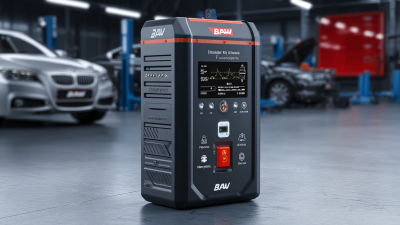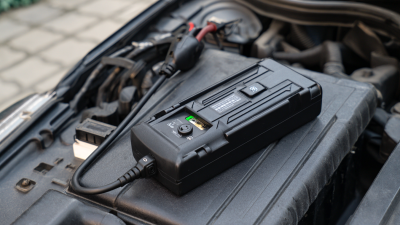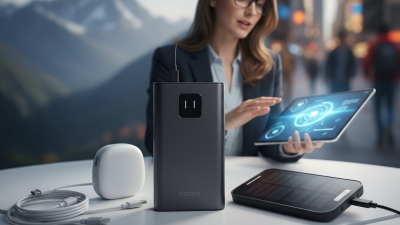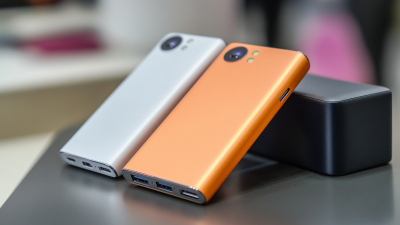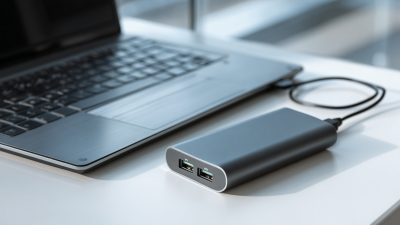Leave Your Message
When it comes to choosing a Mobile Car Battery Charger, every detail counts. Industry expert James Parker once stated, "A reliable battery charger can save you from being stranded." This emphasizes the importance of having the right equipment ready for emergencies.
Mobile car battery chargers come with various features. Understanding these features can make a difference in your decision-making process. Some chargers are lightweight and compact, perfect for those who prefer portability. Others offer advanced technology, allowing for faster charging times. But not all chargers are created equal, and this is where reflection is necessary.
You might find a charger that looks good on paper but falls short in real-life scenarios. For example, some users report issues with reliability. If you're in the market for a Mobile Car Battery Charger, consider how often you drive and your typical battery usage. Ultimately, the right choice may not always be the most expensive one but rather the one that fits your specific needs.
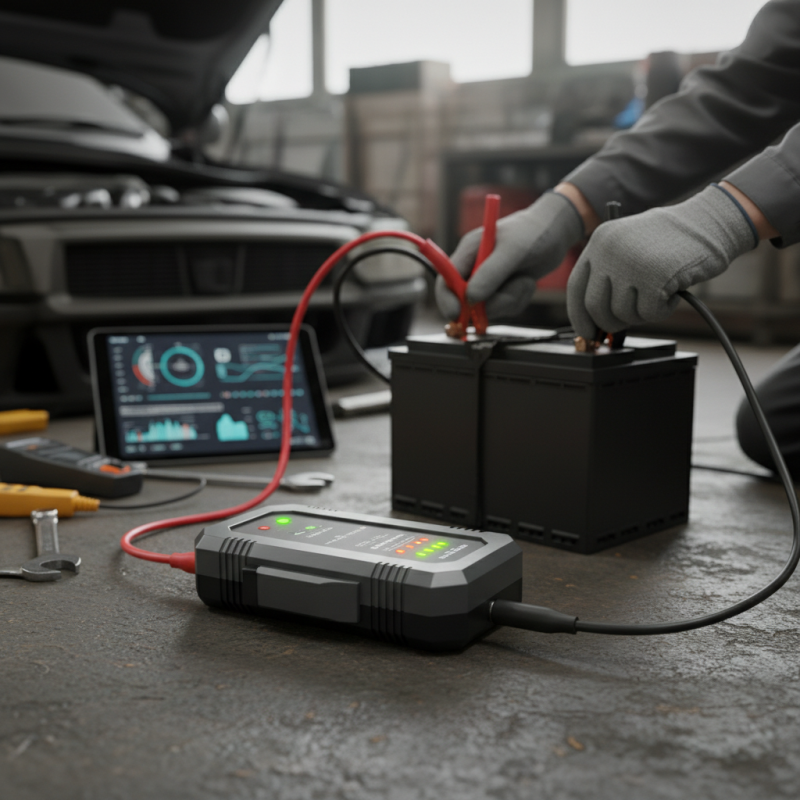
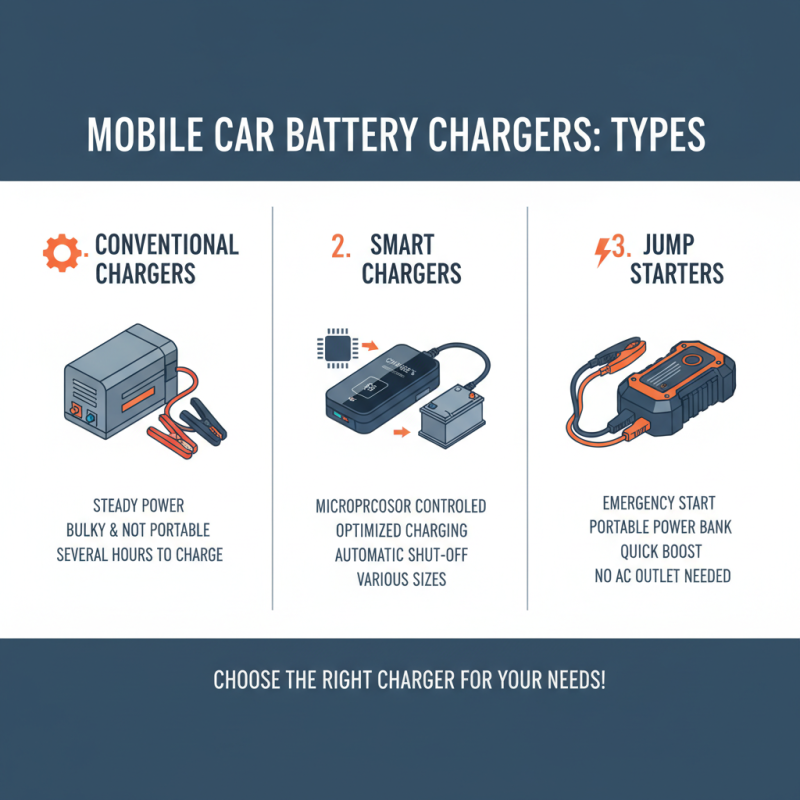
When choosing a mobile car battery charger, it's essential to understand the types available on the market. There are mainly three categories: conventional chargers, smart chargers, and jump starters. Conventional chargers provide steady power to a battery. They are often bulky and not convenient for portability. They typically take several hours to recharge a battery fully.
Smart chargers are a popular option due to their efficiency. According to the Battery Council International, these chargers can reduce charging time by 50%. They automatically adjust the power output based on the battery's condition. This feature prevents overcharging and extends battery life. Many users appreciate the user-friendliness of these devices. However, the technology can be complex for some.
Jump starters are designed for emergencies. They provide a quick and powerful charge to get a vehicle running. However, they often lack the versatility of smart chargers. A 2023 study by the Automotive Battery Research Institute indicated that 30% of drivers still struggle with selecting the right jump starter. While helpful, these devices may not always fit every battery type. Always check compatibility to avoid potential issues.
When choosing a mobile car battery charger, focus on essential features that cater to your needs. Look for chargers with multiple safety protections. Overvoltage and short-circuit protection are crucial to prevent damage. Consider a unit with reverse polarity protection to avoid connection errors. These features can save money and hassle in the long run.
Charging speed is another critical aspect. Some chargers can fully charge a battery in under an hour, while others take longer. Think about your schedule. If you're often on the go, fast charging may be a priority. Compact design also matters. A lightweight charger is easier to store in your car and carry around.
Tips: Always check compatibility with your vehicle's battery type. Some chargers work better with lead-acid batteries, while others suit lithium batteries. Reading customer reviews can help you gauge performance. Don't forget to look into the warranty. A solid warranty shows confidence in the product. Small details can make a big difference.
When considering a mobile car battery charger, start by assessing your vehicle's battery needs. Battery specifications can vary significantly. Most standard cars have a battery capacity of 40-100 amp-hours. Heavy-duty vehicles may require chargers that support higher capacities. It’s crucial to match the charger’s output with your battery type.
Tip: Check your owner's manual for detailed specifications. It provides valuable insights into what your vehicle requires. For instance, a lead-acid battery charger fits conventional cars. Lithium-ion batteries demand a specific charger due to their unique characteristics. Failing to choose the right type can damage your battery.
Another element to consider is portability. A compact charger is easier to store in your vehicle. Weigh the charger’s weight and dimensions against your needs. Remember, an overly heavy charger may be impractical for regular use. Look for a model that balances power with convenience.
Tip: Look for chargers with multiple charging modes. They can cater to different battery conditions. Some battery health indicators offer insights into the charger’s efficiency. These features may prevent lots of frustration down the road. Batteries that are consistently undercharged can experience a decline in lifespan. Make informed decisions to avoid unnecessary replacements.
Choosing the right mobile car battery charger can be challenging. Start by comparing prices across various retailers. The cost can vary significantly, often based on features. Some may seem too cheap, but may not deliver.
Consider what you're actually paying for. High-priced chargers might offer advanced features, but this doesn’t always mean high quality. Weigh the functionalities that matter to you. A compact design may be important if you have limited space.
Look for reviews and user feedback. They provide valuable insights into reliability. Sometimes, a mid-range charger performs just as well as a premium one. Make sure to check the warranty, too. A shorter warranty might indicate lower confidence in product durability.
This chart compares the charging time, capacity, and price of various mobile car battery chargers to help you find the best value for your needs.
When using mobile car battery chargers, safety should always come first. It’s crucial to read the manual carefully. Each charger has unique requirements. Follow these guidelines to ensure proper handling. Always wear gloves when connecting the charger. This simple habit reduces the risk of electric shock. Avoid contact with acid, as this can harm your skin.
Check the charger for damage before use. Look for frayed cords or cracks. A damaged charger could pose significant safety risks. Keep the area around the car clean and dry. Water and electronics don’t mix well. When connecting, ensure the clamps attach correctly. Misplacing them can lead to sparks or even battery damage.
Lastly, be mindful of the environment when charging. Keep the charger away from extreme temperatures. Heat can cause batteries to fail or explode. It’s also wise to avoid charging in a confined space. Ensure proper ventilation to prevent harmful gas buildup. Reflect on these aspects. They might seem trivial, but they’re vital for safe usage.
| Feature | Description | Safety Tips |
|---|---|---|
| Size and Weight | Compact and portable designs are easier to store and carry. | Ensure that the charger fits comfortably in your vehicle. |
| Amp Rating | Higher amp ratings can jump-start larger vehicles quickly. | Follow the manufacturer's guidelines to avoid overheating. |
| Battery Type Compatibility | Ensure it is compatible with lead-acid, AGM, or lithium batteries. | Check the specifications before use. |
| Safety Features | Look for short-circuit protection, reverse polarity protection, and overload protection. | Use chargers with built-in safety features to prevent accidents. |
| Brand Reputation | Consider reviews and feedback from verified users. | Buy from reputable sources to ensure quality. |
| Warranty and Support | A good warranty indicates confidence in product quality. | Check customer service options and warranty details. |
| Charging Speed | Faster charging can save time in emergencies. | Do not leave the charger connected for longer than needed. |
